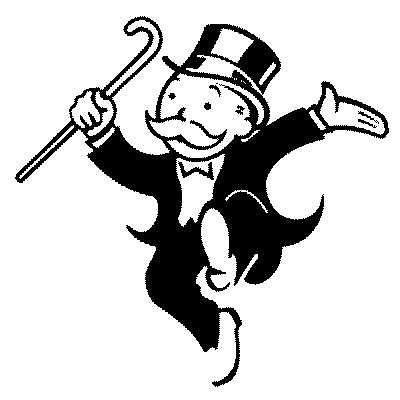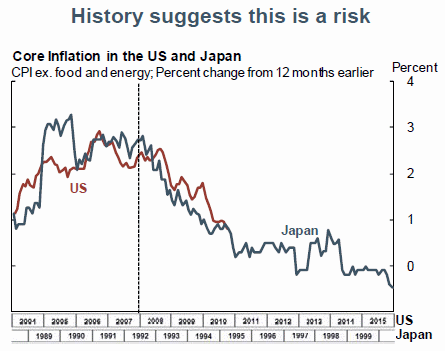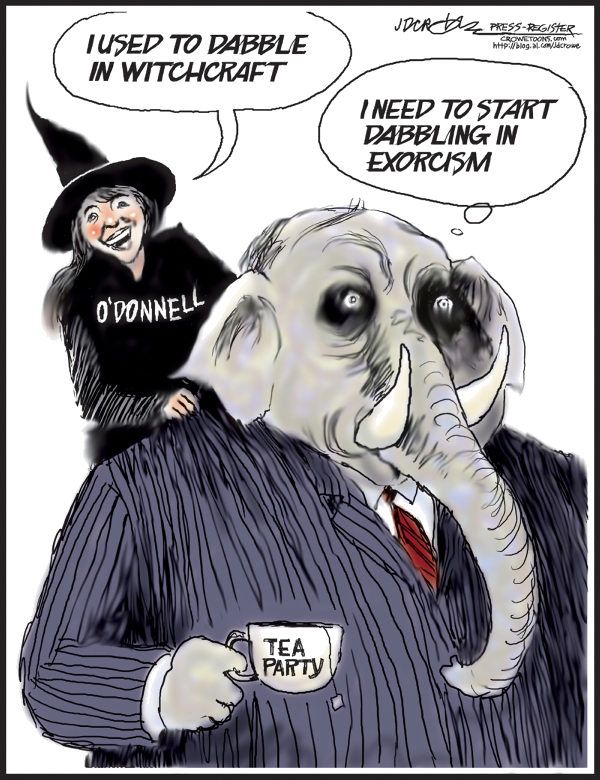 Monday Business Edition
Monday Business Edition
Economics isn’t much of a science.
Sure they try and dress it up with the maths and produce the pretty graph, but in the end the letters are all just acronyms designed to make words look like numbers and somehow impart the dignity of 2 + 2 = 4 to arguments considerably more specious (a hard currency pun).
Take for instance Keynesian. Today it’s being thrown as a slur and adopted to include almost anything that’s not related to Monetary policy and a Friedmanite/Greenspan fantasy land where government employment doesn’t produce anything of value (otherwise Capitalists would be doing it, by definition) and the concept of ‘public good’ is unknown.
The 2 leading schools of economic thought in the United States are the Freshwater School centered on the University of Chicago where Friedman taught and the Saltwater School which would be every one else. Krugman has an essential summary.
But they’re both Monetarist Schools and Monetary Policy prescriptions don’t work when you have zero interest rates and incredible liquidity but your problems are under capacity utilization, over supply, and lack of aggregate demand. You can’t push a string.
Then you need Fiscal Policy and deficits don’t matter. We’ve grown or devalued our way out of every deficit we’ve ever had, our Currency is Sovereign (when I pay off my T-Bills I give you nice shiny greenbacks and tell you they taste great in a vinagrette), and who gives a rat’s ass about devaluation anyway, the only people it hurts are bankers and billionaires and they both deserve a spanking (some prefer the haircut metaphor).
My point about labels is this- my views about macro economics, political economy, are what is properly called Neo-Classical Synthesis believe it or not because they’re grounded in Samuelson’s seminal 1948 Economics. Krugman, DeLong, Stiglitz, Reich, etc. get called Neo Keyesians but that’s not what they’re really about, they’re all Samuelson Neo-Classicists. Part of the problem with academic debate is that there has to be some otherwise you might lose your phony baloney job or, even worse, go out and teach some smelly undergraduates instead of sitting in your office writing papers.
Neo Liberal is an entirely different philosophy, but because lazy and stupid media people think anything new is Neo even though they live in the matrix and Liberal is Goldwater and Nixon, that one gets thrown around a lot too.
Krugman–
The point is that we have perfectly good models for thinking about the state we’re in – models in which we can describe what all the agents are doing and why, models that have done a very good job in terms of predicting how events have proceeded. Moving back and forth between simple new Keynesian models and their IS-LM translations, it was straightforward to show that a huge expansion in the monetary base could and would go along with continuing disinflation, that massive government borrowing would not cause an interest rate spike, and so on.
So what’s wrong with my “one model to rule them all”? Well, it doesn’t easily translate into anything that looks like monetarism – for a good reason: when short-term interest rates are near zero, the distinction between the monetary base, which the central bank controls, and the much broader class of safe short term assets, which it doesn’t, more or less vanishes. That’s not a bug, it’s a feature; it says that when you’re in a liquidity trap, thinking in terms of the supply and demand for money is just not a helpful way to approach the issues.
More Krugman–
But maybe this is an opportunity to reiterate a point I try to make now and then: economics is not a morality play. It’s not a happy story in which virtue is rewarded and vice punished. The market economy is a system for organizing activity – a pretty good system most of the time, though not always – with no special moral significance. The rich don’t necessarily deserve their wealth, and the poor certainly don’t deserve their poverty; nonetheless, we accept a system with considerable inequality because systems without any inequality don’t work. And before the trolls jump in to say aha, Krugman concedes the truth of supply-side economics, that’s not an argument against progressive taxation and the welfare state; it’s just an argument that says that there are limits. Cuba doesn’t work; Sweden works pretty well.
And when we’re experiencing depression economics, by which I mean a situation in which it’s hard to create sufficient demand to achieve full employment – mainly because short-term interest rates are up against the zero lower bound – the essentially amoral nature of economics becomes even more acute. As I’ve said repeatedly, this is a situation in which virtue becomes vice and prudence is folly; what we need above all is for someone to spend more, even if the spending isn’t particularly wise.
The trouble in practice is that conventional modes of thought tend to prevail even when they shouldn’t; in particular, public spending on the scale needed never seems to happen. That’s why Keynes facetiously proposed burying bottles full of cash in coal mines, so people could dig them up again: since any proposal to spend money on things we need got shot down on grounds of prudence and efficiency, he proposed completely pointless spending instead.
Still More Krugman–
What I’d say about America now is that we have big problems, very much including too much talent going into financial fiddling, too few people who actually make stuff – actually, I worry as much or more about machinists as I do about scientists and engineers. But that observation has virtually no bearing on high unemployment right now. So I’d hope we can walk and chew gum at the same time, appreciating the structural problems but not letting that understanding get in the way of fighting the immediate jobs crisis.
Robert Reich–
My argument is just to opposite. For three decades American consumers managed to maintain demand despite flat real wages. They did this by sending women into paid work, working longer hours, and then borrowing to the hilt. But all these coping mechanisms have come to an end. So it’s only now that we have to face the reality that most Americans have not shared in America’s prosperity.
Now with 26 Stories from Yahoo Business News.




Recent Comments